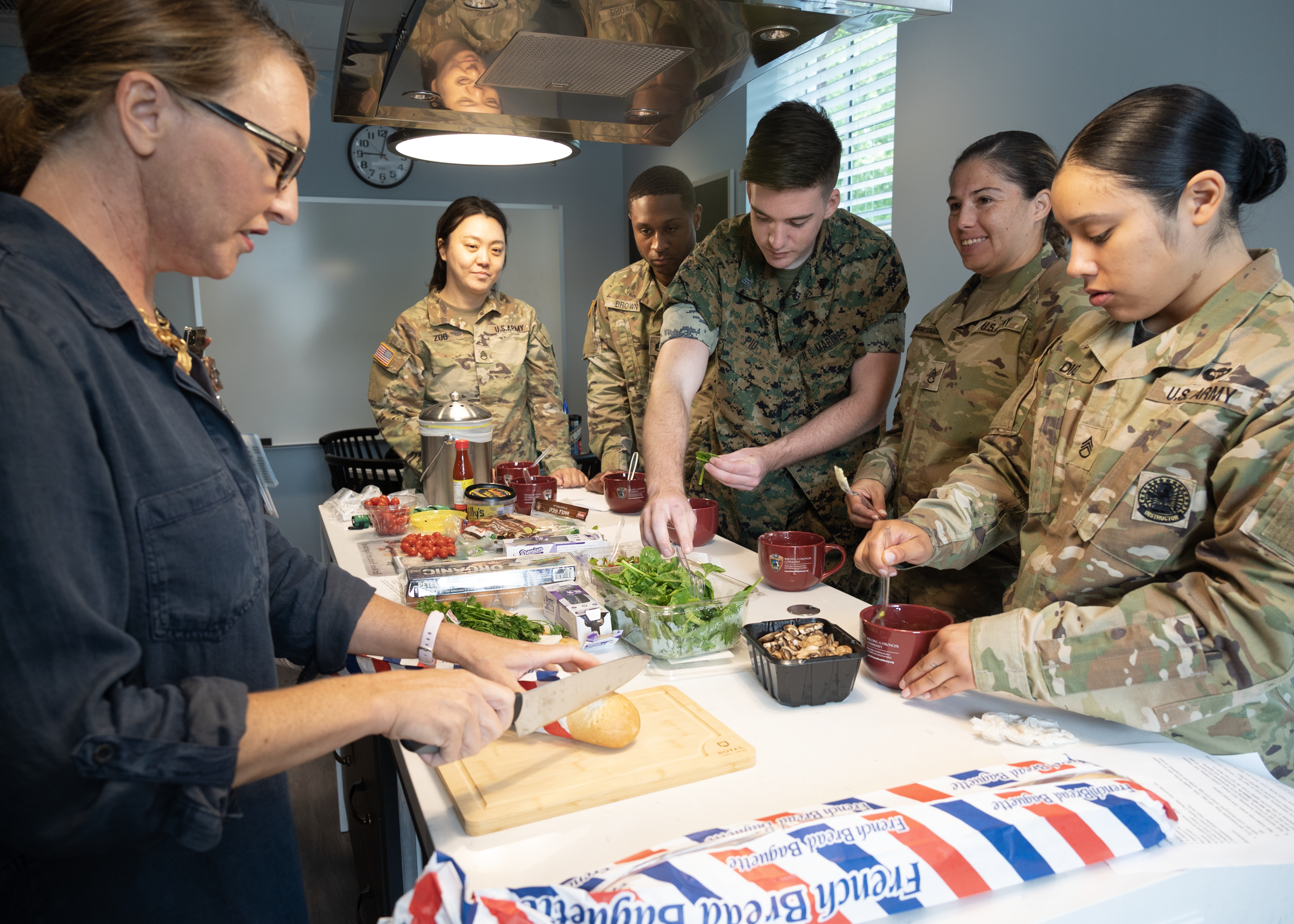FORT GEORGE G. MEADE, Md. –
The Fort Meade Armed Forces Wellness Center hosted the first iteration of an integrative training program Aug. 21-25 that aimed to deliver holistic wellness education to service members in the National Capital Region.
The weeklong Navigating Operational Wellness Training Program informed service members of the resources available to them on the installation, how to identify risk within their organizations at a basic level, and how to connect their squad to necessary resources.
Noelle Austin-Jones, director of Fort Meade AFWC, took inspiration from the Fort Belvoir AFWC course, which was developed last year. Austin-Jones said a significant reason for wanting to have the program here was the challenge of reaching service members embedded within secure organizations and letting them know the resiliency resources that are available to them.
“These service members in the training are the ones that will have eyes and ears on the people that need this connection with these resiliency resources,” Austin-Jones said. “By putting them through the training, it creates a wellness ambassador embedded within their unit.”
Subject matter experts from Kimbrough Ambulatory Care Center; National Capital Region Ready and Resilient Performance Center; Fort Meade Morale, Welfare and Recreation; Fort Meade Army Substance Abuse Program; Religious Support Service; and Financial Education Program Managers provided interactive briefs throughout the training. Topics included nutrition and performance fueling, mental skills and leadership, sleep hygiene and stress management, behavioral health, financial readiness, global installation resource education, and Army Combat Fitness Test coaching and grading.
 One of the trainings included a hands-on cooking demonstration where participants learned how to make a quick and easy breakfast in the microwave. Leah Roberts, a dietitian at Kimbrough who led the demonstration in collaboration with the Fort Meade Alliance, said her goal was to uncomplicate healthy eating, get back to the basics and improve unit readiness.
One of the trainings included a hands-on cooking demonstration where participants learned how to make a quick and easy breakfast in the microwave. Leah Roberts, a dietitian at Kimbrough who led the demonstration in collaboration with the Fort Meade Alliance, said her goal was to uncomplicate healthy eating, get back to the basics and improve unit readiness.
“We focused heavily on base-centric assets to include the Kuhn Hall teaching kitchen, Freedom Inn Dining Facility, and the Commissary,” Roberts said. “This allowed participants to be actively engaged in the steps one could take right here at Fort Meade to shop, prepare or acquire healthy food.”
U.S. Marine Corps Sgt. Anthony Pio, a Mass Communications Foundations instructor at the Defense Information School, participated in the program so he could share the knowledge he learned with the health and holistic fitness council recently established at DINFOS.
“I think it’s pivotal for service members to be well-rounded in their fitness,” Pio said. “The base resources are going to be extremely useful ... knowing that we [wellness ambassadors] can bring them [Marine students] and teach them ‘here’s how you can make healthy food in a barracks room, here’s how you can go and better yourself as a service member and a junior service member,’ and be able to walk them to the resources that they’re going to have throughout their entire Marine Corps career.”
Students who completed the course received certifications in exercise programming and height-and-weight taping.
Army Staff Sgt. Benjamin Bechtel, a Master Fitness Trainer with 742nd Bravo Company, participated in this program because he believed it was a good way to expand his knowledge base and better support his Soldiers in their fitness goals.
“As an MFT, [exercise programming and height-and-weight taping] are on the top of my list in my role,” Bechtel said. “This is a way I can check myself to make sure I am on top of my game and that I can inform my noncommissioned officers to get them up to the right level and make sure we’re passing this on to our Soldiers so they are aware of where they are standing and help them improve.”
The next iteration of the training is scheduled for December. Austin-Jones said individuals interested in participating can contact the Fort Meade AFWC at 301-677-2006.